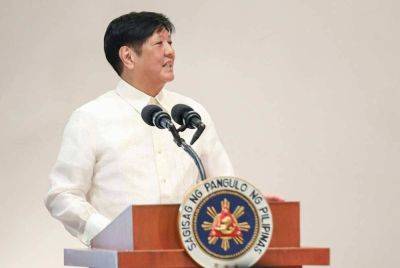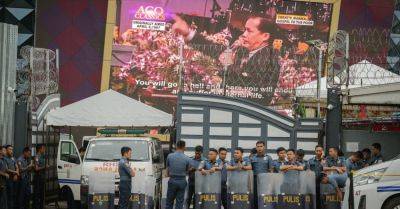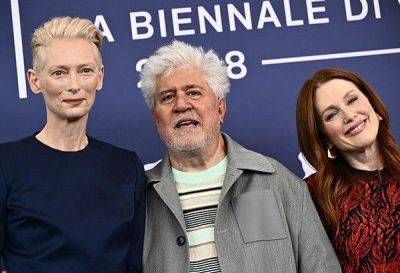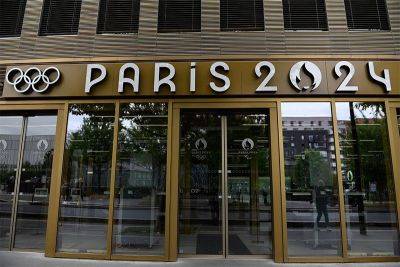Director Asif Kapadia On Why He Wanted His Sci-Fi Docudrama ‘2073’ To Feel Like “A Punch In The Stomach” – Venice Film Festival
In 50 years, what state will the world be in? Based on current indications, it’s hard to avoid answering, “Pretty grim.”
That’s certainly the perspective of Oscar-winning filmmaker Asif Kapadia, who imagines a dystopian future in his new film 2073, a hybrid documentary-drama that premieres later today at the Venice Film Festival. Kapadia scans the planet and sees alarming signs — in climate change, the rise of authoritarianism, and the growth of technology as a means of manipulating the public and suppressing dissent. A trifecta from hell.
“It is literally like a dream project, but it’s also a nightmare project. It really is,” Kapadia tells Deadline. “It’s like a ‘cry for help’ film, which is hard to do when they take years to put together and to finance and to cut and to somehow make them work as a film, while also keeping the kind of emotion that you start with, which is what the f*ck is going on in the world?”
Kapadia sets his film 49 years from the present day, in a post-apocalyptic time. [Watch the trailer below]. A woman (Samantha Morton) lives hand-to-mouth in an abandoned mall; surveillance drones track her moves and those of other bedraggled humans scattered here and there. In voiceover, the woman reflects on words her grandmother told her about an earlier era (say, 2024) when society appeared at a tipping point, but ultimately failed to save itself. Morton’s character flashes back to documentary footage that could be pulled from recent newscasts – global warming-driven wildfires and floods; urban landscapes in Gaza, Ukraine or Syria decimated by bombing; tech titans like Elon Musk becoming wealthier by the millisecond.
Kapadia says he sees 2073 as a “warning,” adding, “I wanted it to feel heavy and a punch in the stomach, to be honest. I wanted it to hit people in the gut and I consciously didn’t want to give solutions and hope and have a happy ending. I wanted it to feel uncomfortable. I wanted it to feel like this is serious.”
The filmmaker traces the origins of the project to Brexit in 2016, the referendum that saw U.K. voters, by a slim margin, elect to quit the European Union. The reasoning behind Brexit baffled Kapadia.
“It was me losing my







